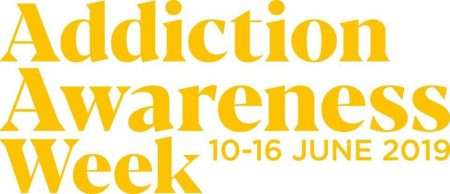The popular social media platform, Instagram, added a new feature that will (hopefully) help people use their apps in moderation. This update, along with other platforms’ similar efforts, is seen as a milestone for the “Humane Technology Movement“, which aims to address the growing and infectious modern-day addiction to technology, smartphones and social media.
With Instagram’s new update, users will be told when they’ve looked through all the new and unseen posts. One can expect to see a simple “You’re All Caught Up” message and a green checkmark as if praising the user for accomplishing their social-media duties and giving them permission to return to the real world.
This new addition will prevent mindless, boredom-induced and time-wasting scrolling through one’s feed. As with many similar apps, like Twitter, Reddit or 9GAG, one can easily go into autopilot mode and lose ourselves in the posts for hours. While these apps are an effective method of killing time when necessary, they can also distract us from our daily duties, such as study, work, or even face-to-face socialising.
That distraction can become an addiction.![]()
Tricks of the Trade: How Social Media Apps Become Addictive
Rings, bells and whistles attract a person’s attention. Social media is undoubtedly distracting, and if a person has been using social media for a long time, they’ve now been trained, like a Pavlov’s dog, that a ping signals a reward. A new message, friend request, a ‘like’, are some of the things that get the modern-day social media user excited.
Social media is everywhere, and if one doesn’t have a Facebook, or Twitter, or Instagram, they’re considered odd. “How else do you stay in touch with your friends?” Vigorous marketing of these apps and platforms, and their thriving popularity have programmed today’s generations to seek social approval, and thus, a person just cannot be off-the-grid.
Notifications are designed less with the focus of “making sure you don’t miss an important message,” and more of the idea of, “Stop what you’re doing. I need your attention!” Because let’s be honest, how many times do you open an app “just” to see who liked your post and found yourself catching up on your timeline instead?
But why do people care? Because social media brands have instilled the fear of missing out (FoMO) into all of us. We all seek to be part of the moment or trend, exactly when it starts; we want to be the first to share that new funny video to our friends, we don’t want to be the last to know about the new Hollywood scandal.
All of these tactics are based on triggering our brain’s reward system. It’s basic psychology and it works. A person’s response to a notification is akin to their response to drugs, which is why social media becomes so addictive.
On the downside, these methods have negative consequences, from generating self-esteem issues, to skewing one’s perception of “friendship”. And stemming from that, is the concern that it affects young children, and what they learn growing up, the most.
Some people have now become aware of this subtle manipulation and are working to change this.
Raising Awareness via Attention Economics
One of the leading figures addressing this issue is the Center for Humane Technology, formerly known as the non-profit organisation “Time Well Spent”. Founded by Tristan Harris, a former Google employee, in 2013, its goal was to bring people’s attention to the urgent issue of technological addiction. Not by scaring people away from their smartphones, but by finding ways to coexist.
There are only 24 hours in a day and only so much attention a person can spare in that time. One of the goals of the Centre for Humane Technology is to change how people spend these two most valuable resources. The organisation doesn’t just focus on consumer awareness, it approaches the problem from the other side as well, using “attention economics” as a tool.
Making people mindful of this pandemic only does so much; educating companies and marketing managers about its effects and consequences, and teaching them technological etiquette is far more efficient in the long run.
Attention economics utilises basic economic theory, using human attention as a scarce resource. Applying this to marketing tools can alter information management in a way that maximises technological benefit while not neglecting human wellbeing.
Judging from various recent news headlines, the Center for Humane Technology has clearly made an impact. It came as a pleasant surprise when Mark Zuckerburg issued a statement that Facebook intends to shift its focus on making the social media platform more “modern-age humane” by restructuring it to respecting their users’ attention and time.
Both Facebook and Instagram deserve a pat on the back, especially since the Center for Humane Technology website flat-out criticises them, pointing out that it’s bad for the business model of social media platforms to change their tactics, so it’s hopeless trying to convince them to change.
Things You Can Do Now to Reclaim Your Time and Sanity
Most of us start off and end our day on our phones when we snooze the alarm in the morning and plug it in to charge overnight. Even these two small things can be distracting. When we wake up and pick up our phone, we immediately see all the messages, updates and emails we missed, and instead of getting up and starting our day, we may get stuck in a social media frenzy.
One of the simplest things we can do is buy an old-fashioned, not Bluetooth-capable alarm clock, and charge our phones in another room, so that we can wake up to our own thoughts and not have our phone be the last thing we see before bed.
Many social media apps, and our phones too, allow us to customise our settings to our preferences, so we can turn off notifications completely on some or all apps, or limit them to specific people. Thus, we are not tempted with distraction after every ding, and decide with our own free will when we need a mental timeout from our day.
Reorganise your app layout, so that the home page on your phone or tablet has only important and function-focused apps, not entertaining or distracting ones. Put the rest on a secondary page, or better yet, inside a folder. It’s a simple application of “out of sight, out of mind”. If social media is the first thing you see when you unlock your phone, you’re instinctively going to start browsing it.
Going “cold turkey” may sound extreme, but can be a good way of weaning off addictive apps. This doesn’t mean delete all your accounts, just delete the apps off your phone, and make a rule to check for any updates on your computer or a less readily available device.
There are also many apps that can help people detox from technology, the Center for Humane Technology has some suggestions on their website, as well as other tips like the ones mentioned above.
Two popular ones are Freedom, which is available for use on phone, tablets, laptops and desktops, or Flipd. With these, you can temporarily block notifications or access to certain websites or apps for a set period of time.
Alternatively, if you’re just keeping an eye on yourself and would like to know how much you, or your family, spend time on social media or using your phone in general, time-management apps like RescueTime or Moment can be useful.
For more help and information regarding Social Media Addiction, you can contact us or request a call-back from a therapist.
Castle Craig is one of the most established and respected addiction rehab centres in the UK. Castle Craig provides consulting psychiatrists who diagnose associated mental illnesses like anxiety states, depression, ADD, PTSD, eating disorders, compulsive gambling, and compulsive relationships. For information, call our 24 hour free confidential phone line: 01721 546 263. From outside the UK please call +44 808 271 7500 (normal charges apply).



